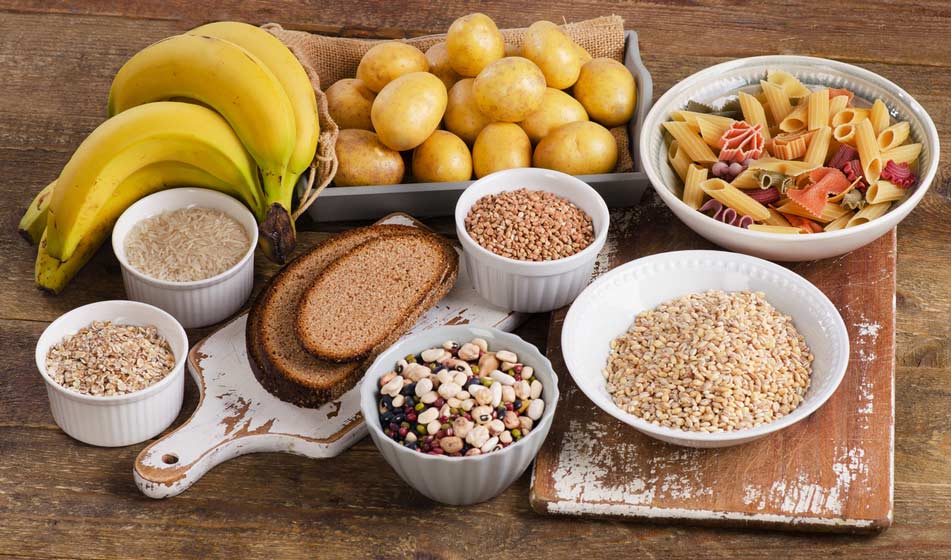
Many people follow a low carb diet to lose weight or maintain other areas of their health. But are carbohydrates bad, and are they all the same?
What Are Carbohydrates?
Carbohydrates are one of the three macronutrients—protein and fat are the other two. These three nutrients are how your body gets energy. Human bodies can't manufacture these on their own, so we must consume all three in our diets.
Of the three macronutrients, carbs provide the fastest source of energy. After going through the small intestine, they travel to the liver where they are converted into glucose that is sent around to all of the cells in the body to fuel them.
If you take in more carbs than your body needs for energy, the glucose can be stored as glycogen in the muscles for release later, or it can be stored as fat.
Not All Carbs Are the Same: Three Types of Carbohydrates
There are three types of carbohydrates, and they all get converted to glucose, but otherwise, they act differently in the body.
- Simple carbohydrates are made of simple sugar molecules that don't require much digestion to be used by the body.
- Complex carbohydrates are made of longer, more complicated molecules, and they require more digestion to be usable inside the body. Once they're in the bloodstream, their energy boost lasts longer than that of simple carbs.
- Fiber is a type of carbohydrate that isn't digested and used by the body. It can help provide bulk, improve digestion, control blood sugar levels, help control cholesterol, and help you feel full.
Are Simple Carbs Always Bad?
Simple carbs are not always bad to consume. They can provide quick energy and be part of a healthy diet. The trick is to choose simple carbs that are natural and not those that are from added table sugar or refined (processed) foods. When simple sugars are present naturally, as in the case of fruit and milk, they are present in combination with other healthy nutrients that your body can use simultaneously. In the case of foods that have added sugar, that's not usually the case.
Here are some ways to make your carbohydrate consumption work better for you and your weight loss and other health goals:
- Bump up your consumption of complex carbs and fiber, like whole grains, vegetables, beans, and legumes.
- Decrease or eliminate refined carbohydrates with added sugar.
- Use natural sugar sources like fruit and milk in place of products with added table sugar, and consider using stevia instead of sugar in your cooking and baking.
You May Also Like These Articles:
How Serotonin Levels Affect Your Weight
How to Tell if Your Hunger Is Real
Best Proteins to Add to Your Summer Salads
Diet Changes for Women in Perimenopause
Intermittent Fasting: What Is It and Can It Help You Lose Weight?
Walking Toward a Better Future: How Taking 8,000 Steps May Help Improve Your Health

